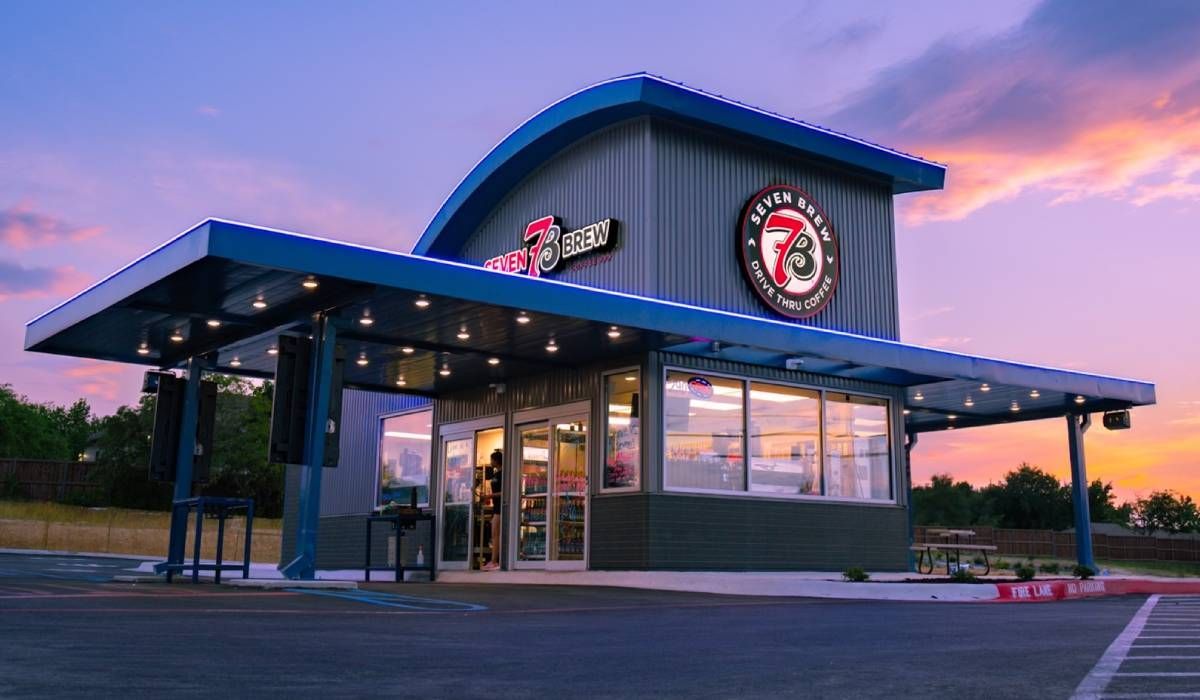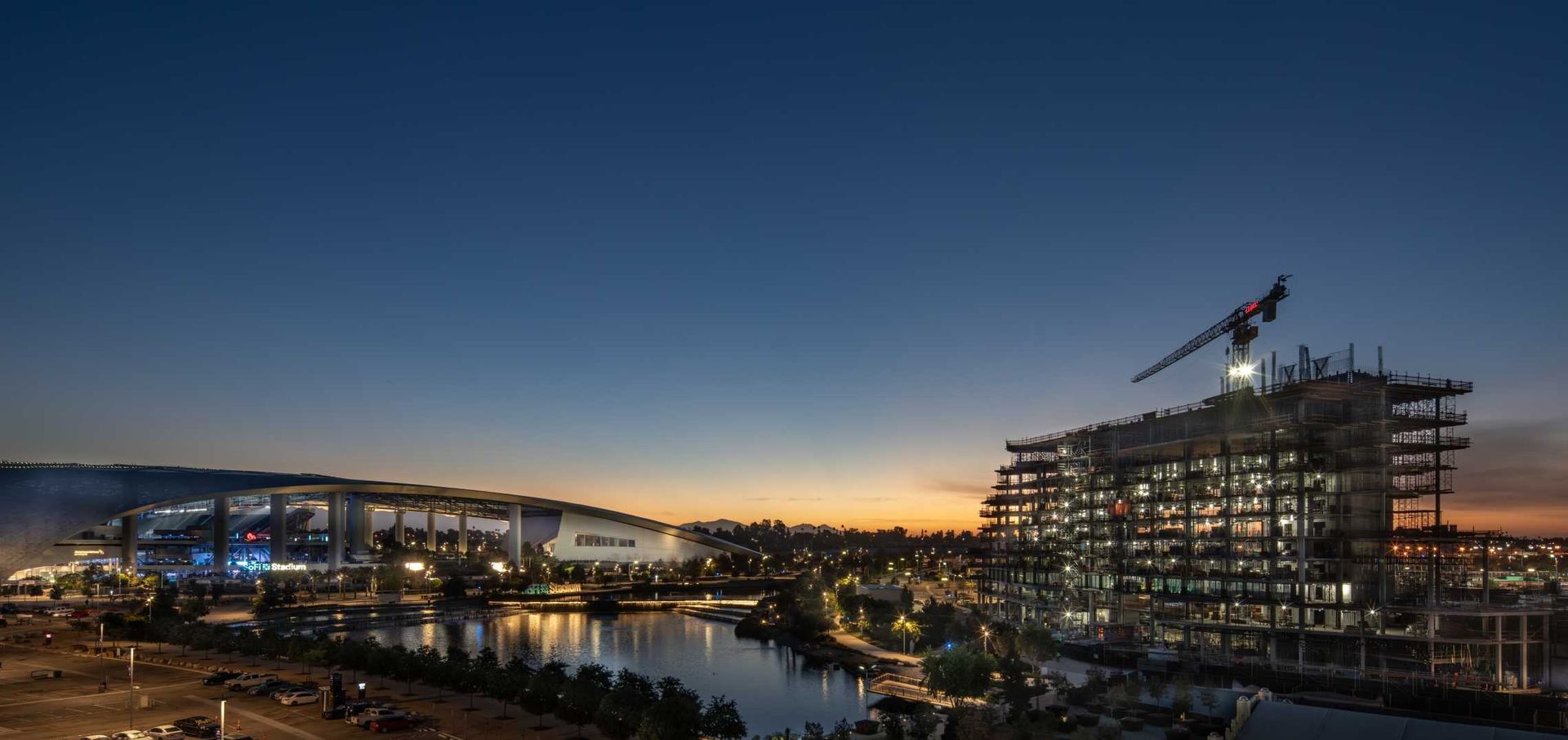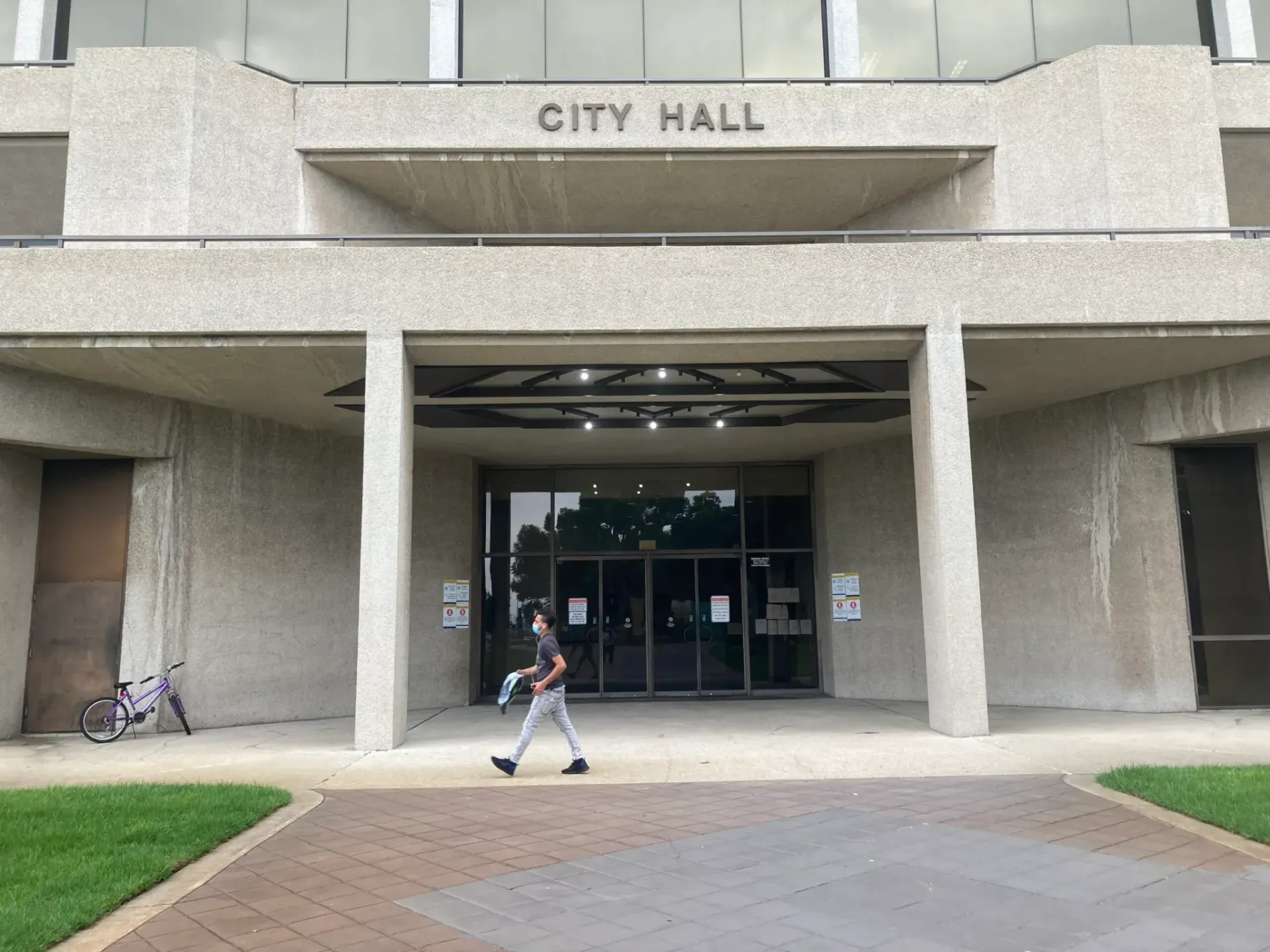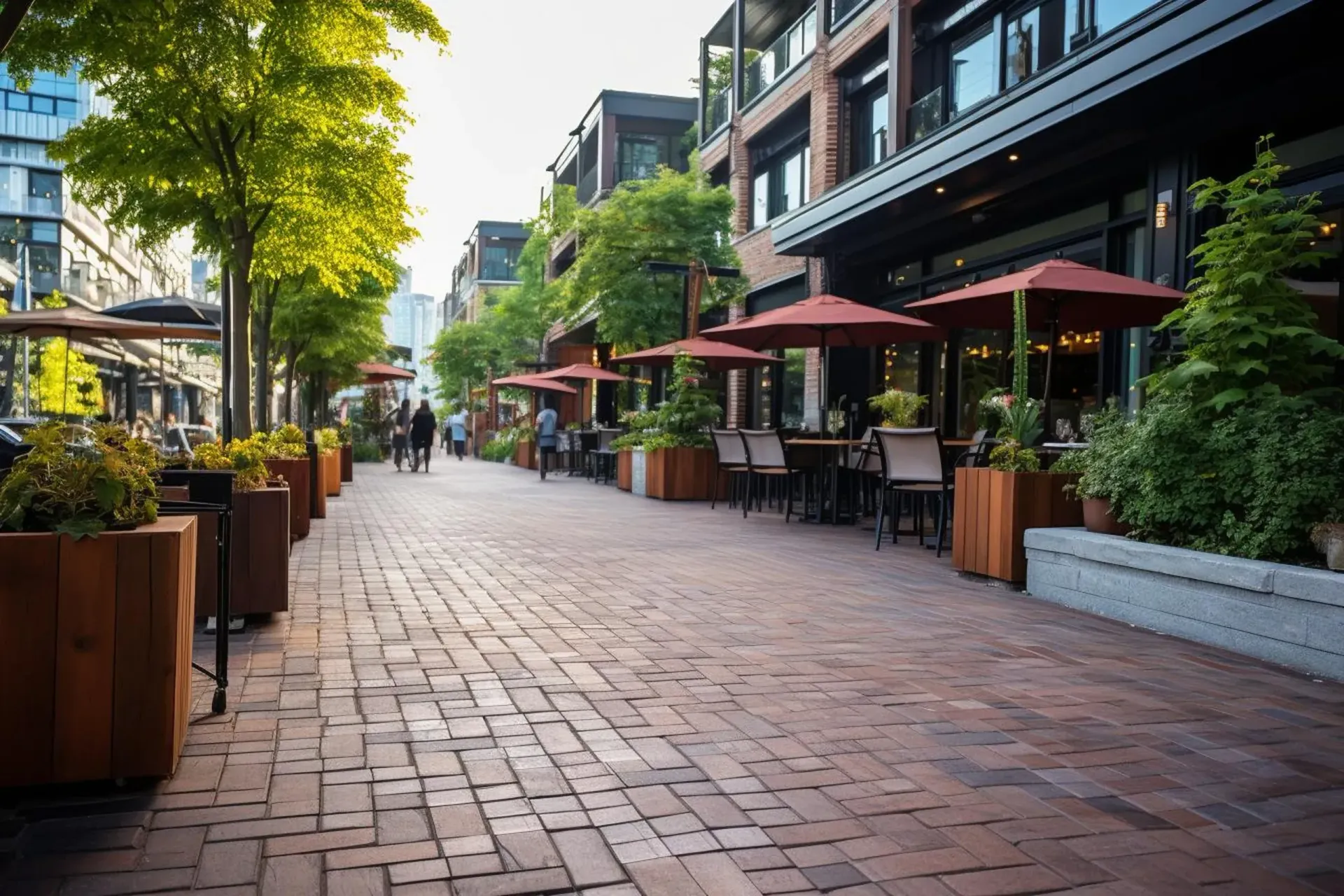Weekly Perl: A Commercial Real Estate News Recap

7 Brew’s Second-Largest Franchisee Sold to FEP
One of QSR’s fastest-growing concepts is getting another accelerant. Franchise Equity Partners, a private investment firm with $1 billion of committed capital, announced Tuesday it’s acquired a majority stake in 7 Crew—the second-largest franchise owner of rapidly expanding beverage chain 7 Brew. As part of the deal, FEP will carry out 7 Crew’s existing development agreement to open more than 200 new stands in addition to the 50 it currently directs...
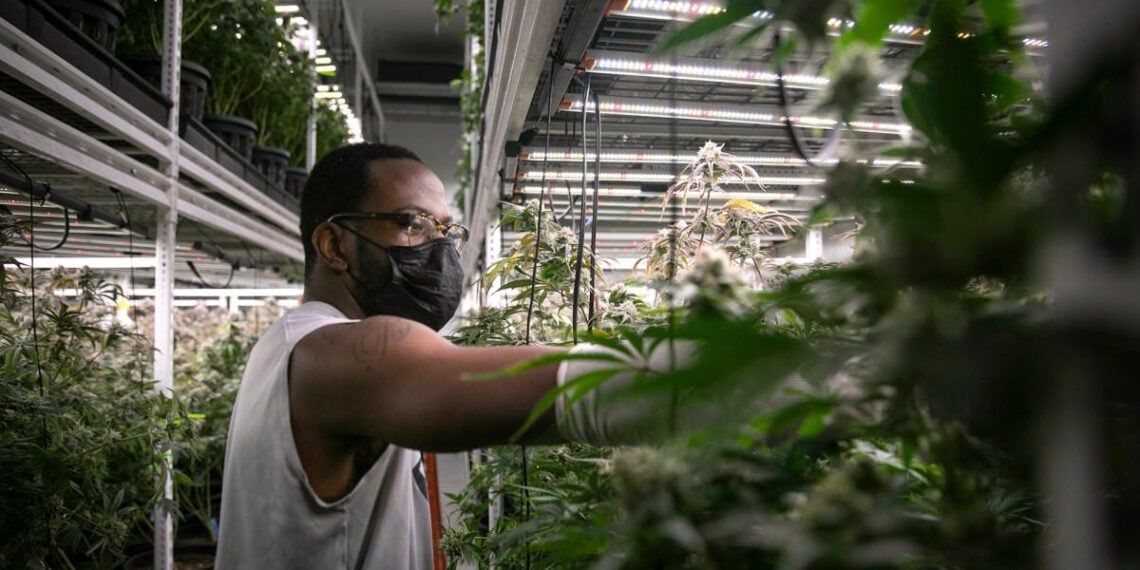
Council approves cannabis for all with vastly expanded options for opening new dispensaries in city limits
The City Council voted 6-1 to allow commercial cannabis in Santa Monica last week. If this seems like old news, it could be because the city has debated dispensaries for more than a decade with a new round of study sessions picking up steam in the past two years...
$300M Kali Hotel tops out next to SoFi Stadium in Inglewood
Just south of SoFi Stadium in Inglewood's Hollywood Park complex, vertical construction is now complete for the Kali Hotel and Rooftop, KPC Development Company announced on September 10 with a topping out ceremony.
The $300-million project, the only permitted hotel within the Hollywood Park Specific Plan, will consist of a 12-story building featuring 300 guest rooms on its upper floors, as well as 34 suites designed for sports and entertainment figures visiting nearby venues. The hotel is to be part of Marriott's Autograph Collection...
Inglewood unveils Fiscal Year 2025-2026 budget showing $24M deficit
INGLEWOOD – The City of Inglewood has unveiled its proposed Fiscal Year 2025-2026 budget, which shows a $24 million deficit.
The budget also details multi-million dollar deficits in the Parking and Traffic, Sanitation, and Water Funds.
The budget begins with a letter from the city manager. explaining the City’s financial position, but in the proposed FY 2025-2026 budget1, they put the same letter former city manager Mark Weinberg wrote for the FY 2024-2025 budget and just changed the heading...

Black Rock Coffee Bar Reaches $294.1 Million IPO
Black Rock Coffee Bar is now officially a public company.
The coffee chain priced its IPO at $20 per share, raising $294.1 million.
The company closed Friday at $27.53 per share, or about 37.7 percent above its IPO share price. That closing price gave the company a market value of about $1.32 billion.
Black Rock is listed on the Nasdaq under “BRCB.” It is the third coffee concept currently trading on the stock market—the other two being Starbucks and Dutch Bros. It is also the first restaurant IPO in two years, following CAVA and Gen Korean BBQ...
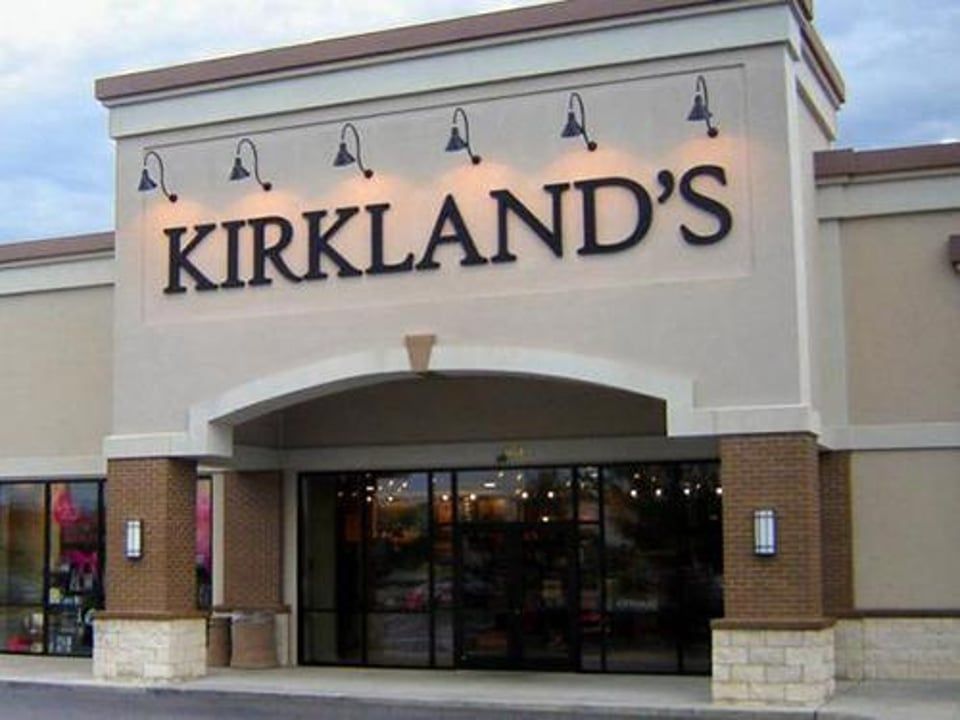
Bed Bath & Beyond closes $10 million purchase of Kirkland’s Home brand assets
The owner of Bed Bath & Beyond, Overstock, Buybuy Baby and a blockchain asset portfolio, has completed its $10 million purchase of the Kirkland’s Home trade name and related brand assets from The Brand House Collective Inc. (In July, Kirkland’s Inc. changed its name to The Brand House Collective.)..
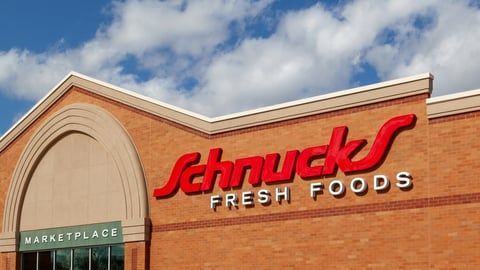
Schnucks Markets to acquire 51 stores in Wisconsin
The newly-formed company that owns Schnucks Markets is expanding its footprint in Wisconsin via an acquisition.
The 1939 Group Inc. has entered into an agreement to purchase 100% of the shares of the Wisconsin-based parent company of Skogen’s Festival Foods and Hometown Grocers Inc. The sale is expected to be completed later in October, subject to customary review and approval...
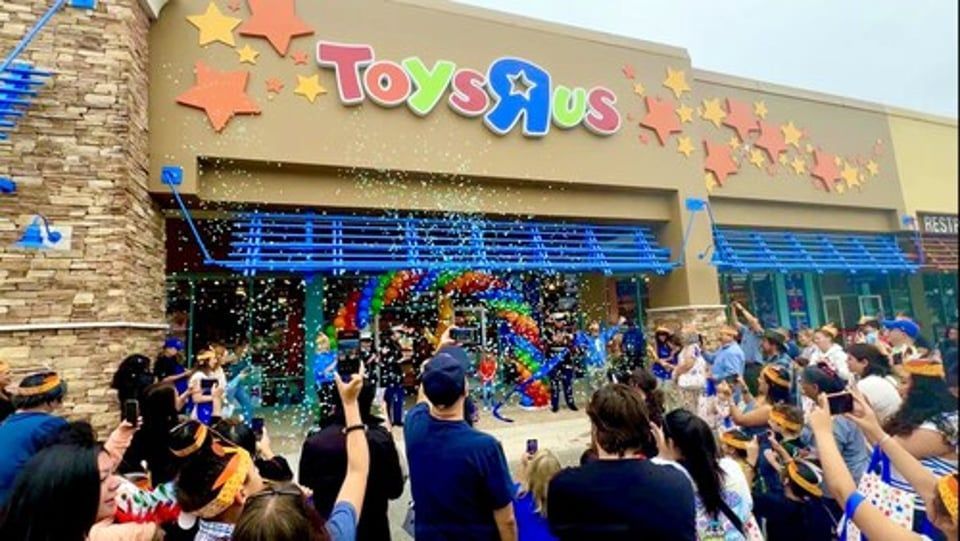
Toys”R”Us to open 10 U.S. flagships by year-end; locations include…
Toys”R”Us is expanding its footprint at home and abroad as it gears up for the toy industry's busiest season.
The toy retailer, in partnership with Go! Retail Group, said it is planning to open 10 new flagships and 20 seasonal holiday shops in the U.S. by year's end...
Consumer Slowdown Hits Retail And Dining Ahead Of Holidays
Retail and dining activity are starting to show a more sustained slowdown, reports GlobeSt. The trend is becoming more noticeable as the holiday season approaches, with foot traffic declining across many states. According to new analysis from Placer.ai, a once-temporary dip in consumer visits may be evolving into a broader, more structural slowdown...
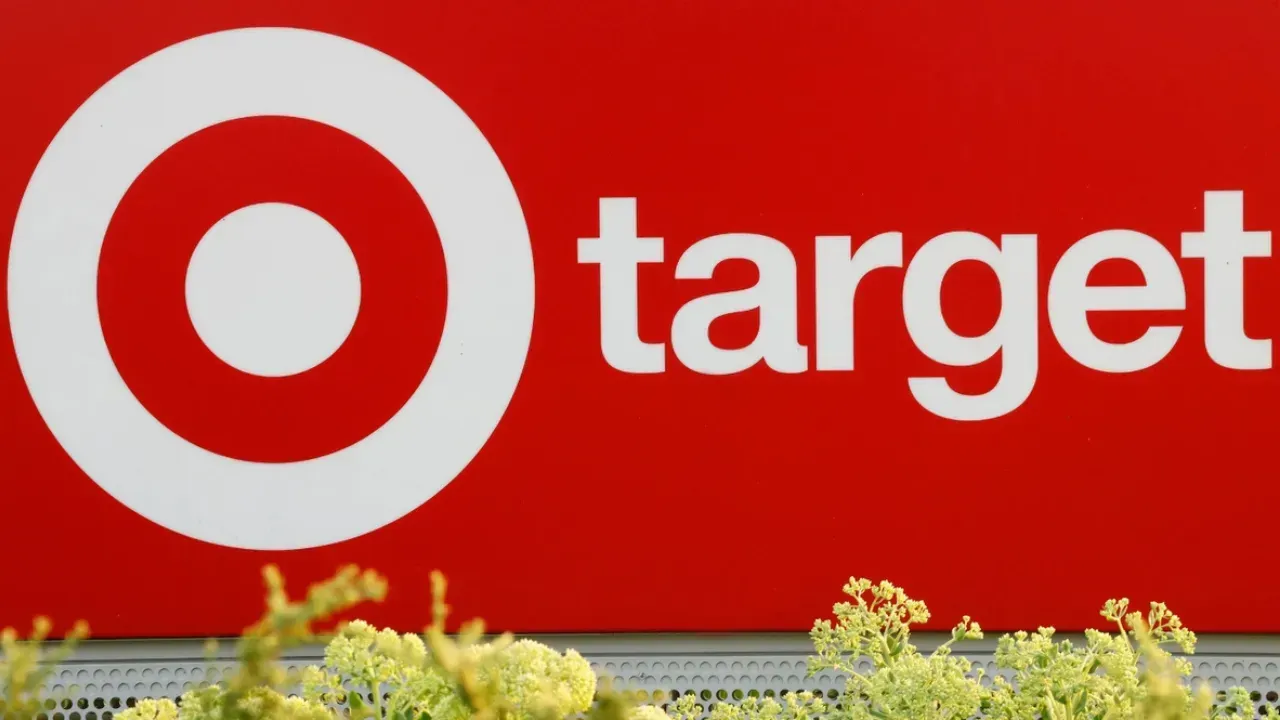
Target is ready to open 7 new stores this fall
Target announced on Monday it will be opening seven new stores this fall in Arizona, California, Florida, Nebraska, South Carolina, Texas and Virginia.
The Minneapolis-based retailer said six of the new stores will lean into larger footprints at over 140,000 square feet.
Target plans on building more than 300 new stores over the next decade, following its stores-as-hubs model where stores serve as both shopping destinations and fulfillment hubs for delivery. Target stores fulfill 95% of the retailer’s digital orders, including same-day delivery service with Target Circle 360...




